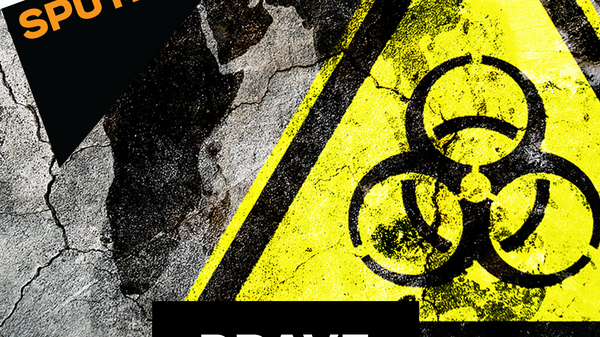BNW's financial guru, Paul Goncharoff, an American businessman living in Moscow explains the current situation.
Paul says that last week, professor Ginko, a Russian economist associated with the Russian government, made an announcement that went viral amongst the bitcoin and cryptocurrency community. He said that in February 2019, Russia is going to be buying bitcoin. Paul says, "Despite Ginko's announcement, that this is highly unlikely, the fact that there is a very serious discussion on the floor of the Duma and in the Kremlin about crypto-rubles is interesting though. The rules and the concepts are being developed now, as we speak, within the Russian government and central bank, but this is not what the geeks of the world would like to see: a peer-to-peer decentralized cryptocurrency. A crypto-ruble, the way it was explained in the Duma, will not be open to the general public to mine, it will be managed by the central bank, it will be available to international buyers and traders, as well as Russian citizens. One crypto-ruble is equivalent to one ruble. What it does do is enable the use of electronic currency, in this case, the crypto ruble, to be used to buy a cup of coffee, buy an apartment, a number of things. Today it is illegal in Russia to trade in cryptocurrencies. A blind eye is turned within reason to the exchanges that are working unofficially here, they call them currency exchanges, converting cryptocurrencies to rubles through the banks here — Sberbank, Tinkoff bank, Alpha Bank, and others."
To the question: What will act as the guarantee for the crypto-ruble? Paul says: "It will be backed up the way the ruble is backed up — by the faith and trust in the central bank of the Russian Federation….It needs to be regulated, its volume has to be controlled, and that's the only responsible way to go forward."
Paul thinks that the launch of the crypto-ruble will be within the next two years. "Optimists say in 2019, this year, but it's like everything else. You set a date and then the can gets kicked down the road, but it's not just Russia, many other countries are looking at a crypto-whatever it is their sovereign currency is, eventually we will see crypto dollars, crypto-pounds, you name it. Look, recently, the President of the Marshall Islands announced very loudly: we will be accepting peer-to-peer cryptocurrencies. Not two hours went by after her announcement when the IMF came down on her case and the US Federal Reserve. Why? Because in the Marshall Islands the US dollar is used. That is the default currency. It would have been a huge thing if it had gone through, but it didn't for many practical reasons."
The selling of US dollars by Russia has been reported in the news recently, as has Russia's purchase of Euros and gold. There is something else happening that not so many people know about. Paul says: "A number of months ago I wrote an article about discussions that are rumoured to be going on between Russia and China about a currency which will be backed by a commodity or a basket of commodities, which is gold, energy, and oil. The rumours of the creation of this currency persist, which leads me to believe that something is afoot….Buying gold both by Russia and by China is a measure of security against the vagaries of the US dollar, and the uncertainty that the dollar has been of lately to the trading world. Throughout the 90s, the dollar was the de facto currency of Russia. It became apparent to Russians that decisions about their country's economy were been taken in Washington. Those who control the money have got the power."
It seems unlikely that Russian and China will form a unified central bank to guarantee a new sovereign currency, but we could see both countries investing in a new currency that would be commodities-backed and also high tech. Paul says: "I think we will see the beginning of this in the Eurasian Economic Union, between China, Russia, the Stans, Iran, the current outsiders of mainline geopolitics. They have been pretty much shunted aside from the mainstream of free trade. We'll see what happens, but a lot of what is happening is not being widely broadcast in the news. Russian has to remain trade capable, so this is an existential situating for Russia….I think whatever will happen will be a solid well-thought-through process.
We'd love to get your feedback at radio@sputniknews.com

